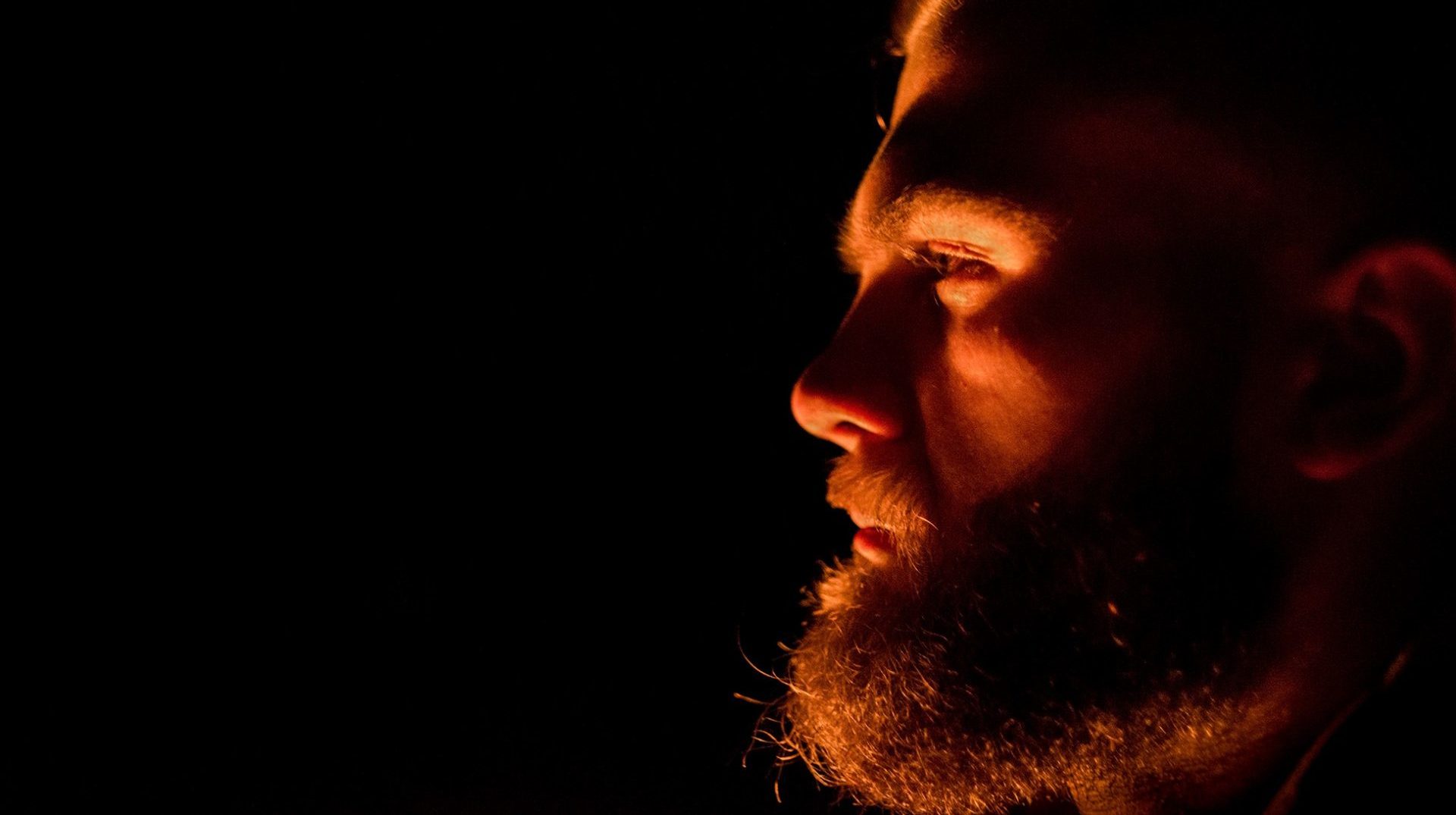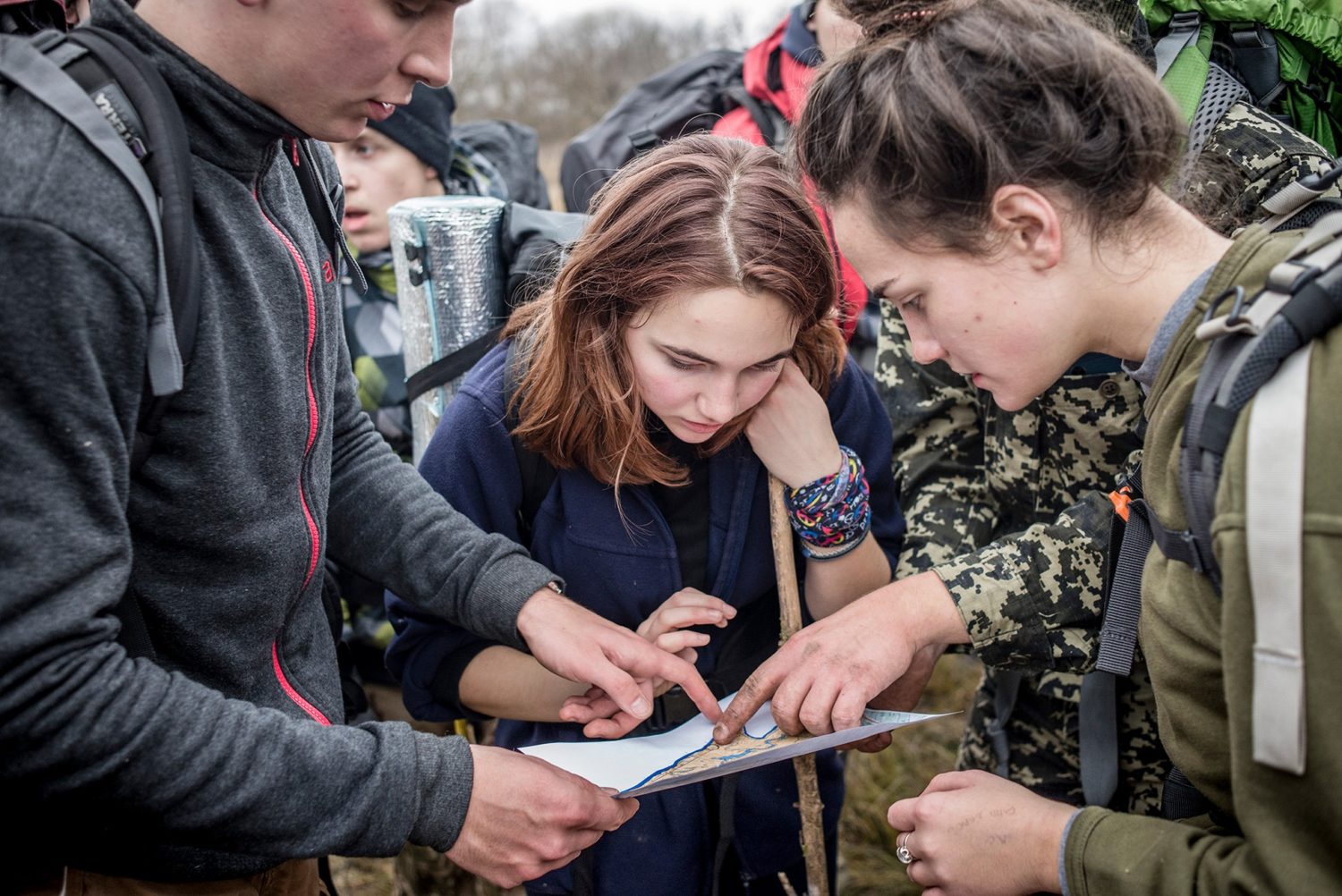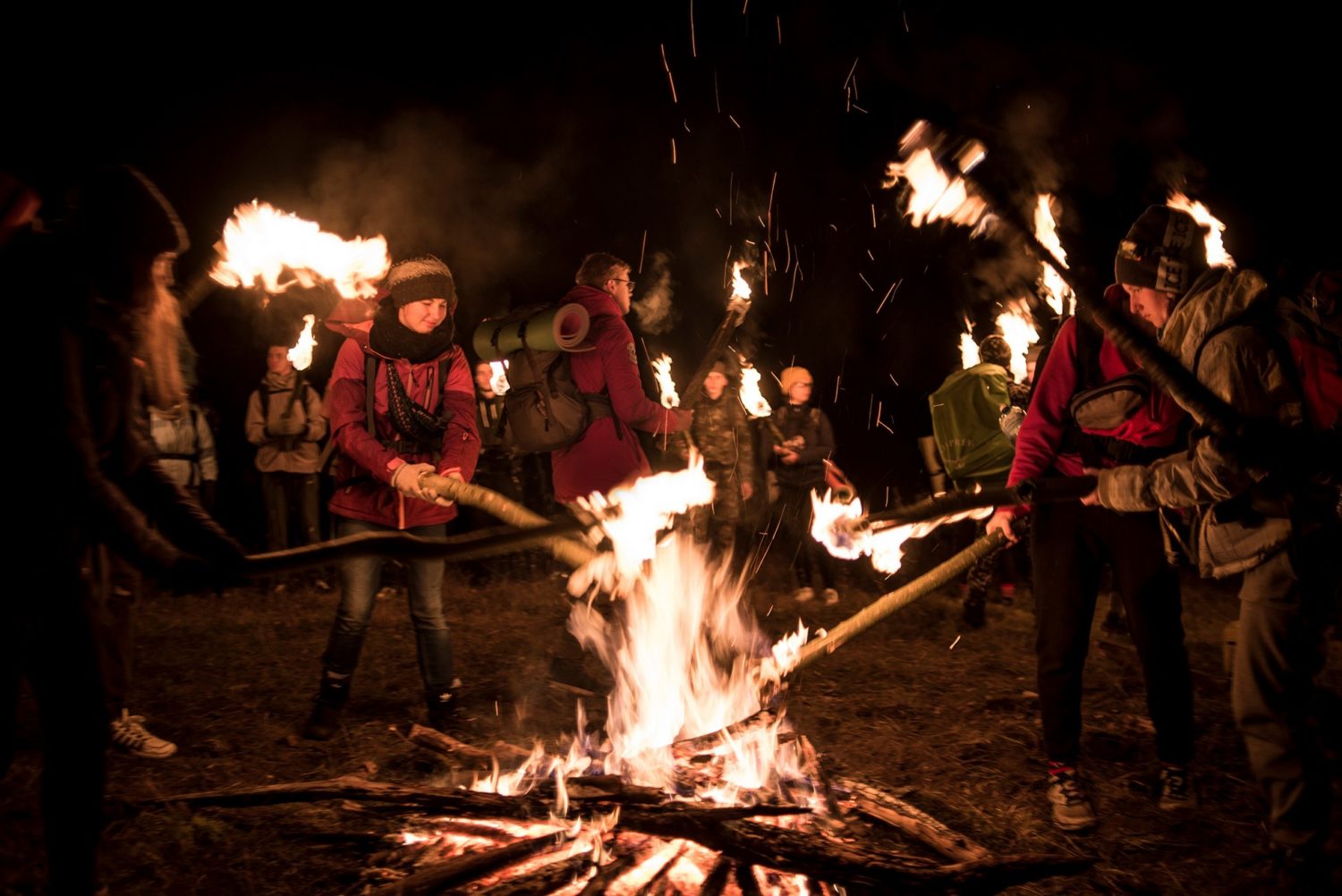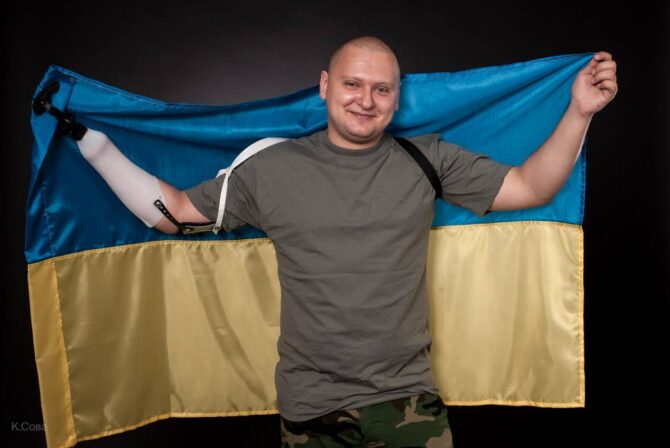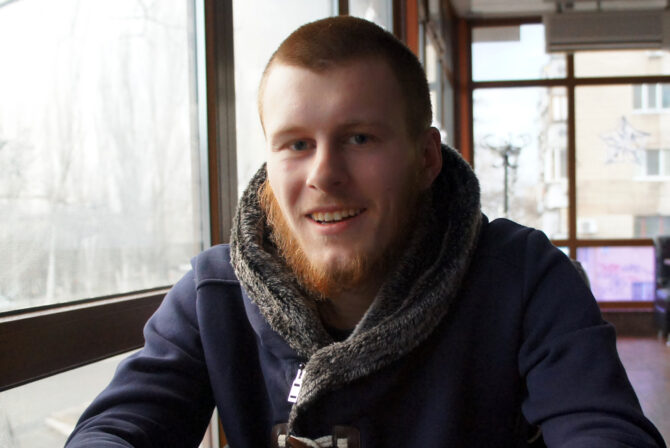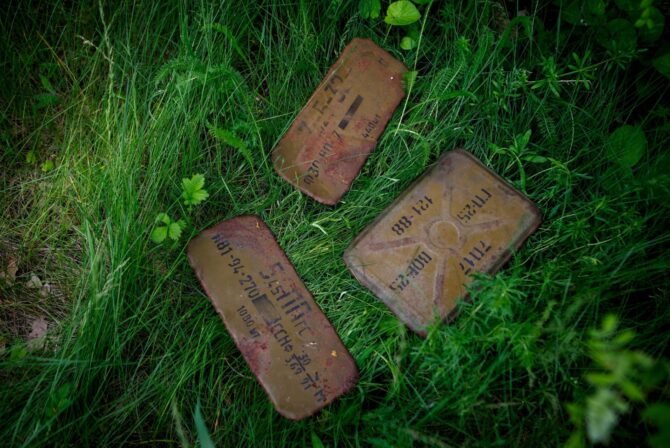[“Transformation of a nation” is a series of multimedia stories about extraordinary Ukrainians who change their country for the better with their actions.
The project is created in partnership with media group “Nakipelo” and carried out with the help of Creative Content Support Fund of the European Endowment for Democracy.
Читать репортаж на русском — “Игра за будущее“]
The dawn is near. The sky above the forest is slowly getting grayer, but here, in the thicket of shrubs, in the closed space between the trees, you cannot see it yet. In the cold twilight, two men in military clothes are sneaking. Their movements are cautions. Their eyes are focused. They are walking as if on a carpet — the ground here is untrodden, springy with humus. Only small branches are cracking under their feet.
Not a person can be heard around.
“Here,” says one of them, stopping abruptly.
In the evening, they will come back and set up a booby trap here, to prepare an ambush.
But now they are moving on.
Having crossed the forest, they walk out onto a plateau surrounded by chalk slopes. From here, they can see the enemy land very clearly — the Russian border is five kilometers away. The men cautiously climb down into a shallow ravine. They pick the least notable spot.
“Don’t you dig so deep, Vakula!” says the younger man. “Or at least try to remember well where you’re burying it. So that we could take the cauldron back later, if they don’t find it.”
And both of them burst in laughter.
At once, their pretend tension vanishes without a trace. The booby traps, the ambush, the imaginary minefield, the food cache — all of this is part of a game, an exercise for students of the Ukrainian Leadership Academy. Only the enemy border is real.
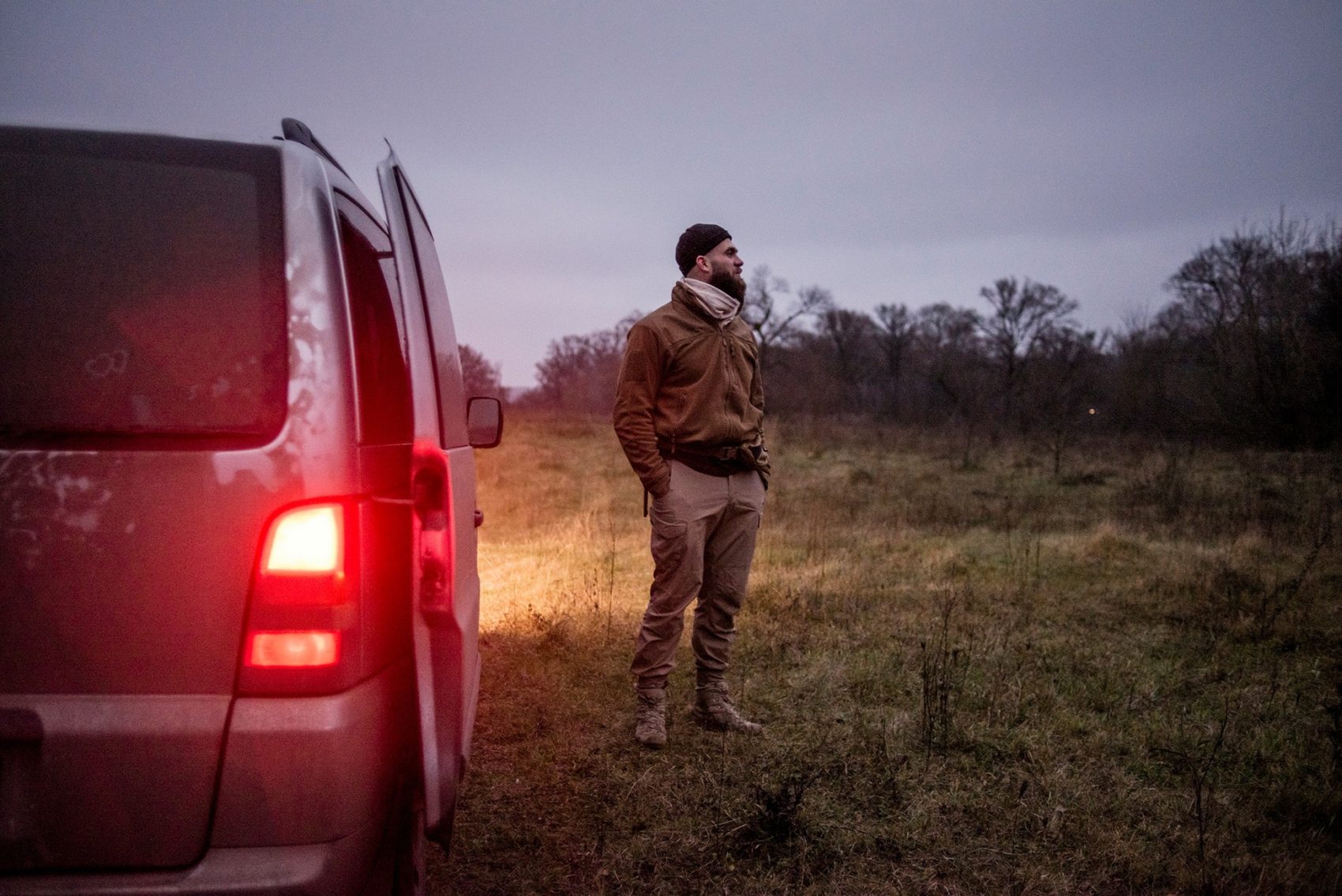
While Vakula is finishing the disguise for the cache and makes several imitations around it to confuse the children, Oleksiy, the other participant of this morning sortie, is peering into the horizon. Maybe he’s recalling how he used to play similar games as a child, at Plast camps. Or how he was very close to the real enemy at the real war two years ago. Or maybe he is trying to feel which moment of his life made him suddenly understand that any change for the better in this country is his responsibility, too.
І. The Revolution
In the hot days of August 1991, when Kyiv was about to announce Ukraine’s independence, two newlyweds were making love in a small village of Rudivka in northern Luhansk region.
In nine months, in May 1992, the Oleksiuks couple had a son. Both were very surprised with that. The mother only managed to ask, “What do you mean, a boy?” For the whole term of her pregnancy, she had been calling the baby inside her Olesia. “But look how pretty he is! As if someone painted the eyebrows on his face,” she heard the doctor saying. In the birth certificate, they registered the baby as Oleksiy (“defender” in Greek).
In the same year, the country where he was born chose its national symbols.
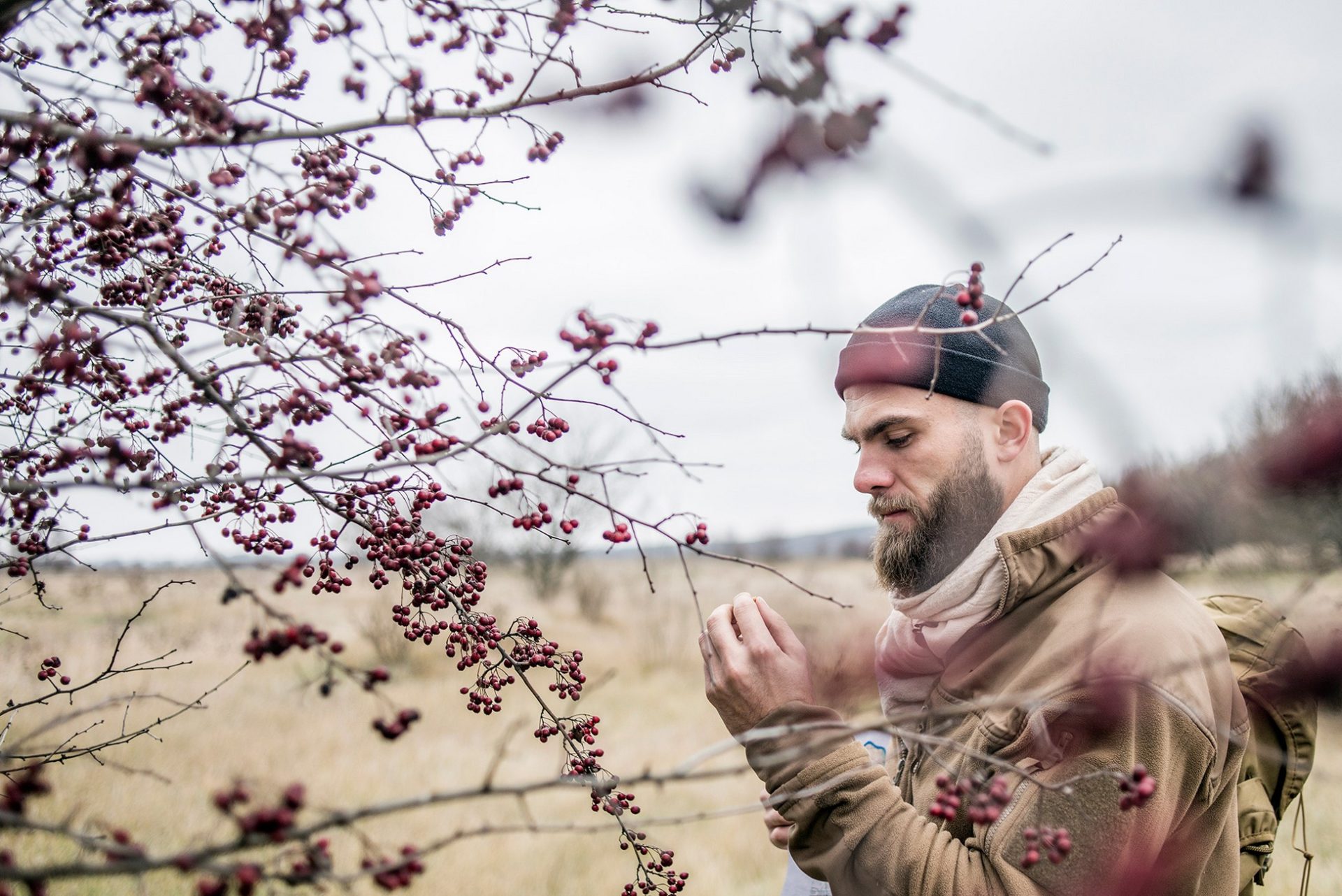
When he was little, Oles — that’s how his parents called him in the first few years — liked to eat toothpaste and pebbles which were generously scattered around their village house. He also liked playing with his beloved shepherd dog Ajax and fighting with the haughty rooster who ended up in the soup because of his temper.
Meanwhile, the country got its own currency, Constitution, and its own Arctic station.
As a teenager, Oleksiy heard how his parents were worried for the events on Maidan. And while most Easterners were irritated at the sight of anything orange, Oleksiy’s father, inspired by the revolution in the capital, decided to change something himself, too. In the industrial Lutuhyne, where his family had moved, he organized a Plast center for his own and other people’s children. The locals didn’t understand it; the Ukrainian language and the uniforms were enough to label the participants as “fascists.”
As a teenager, Oleksiy heard how his parents were worried for the events on Maidan. And while most Easterners were irritated at the sight of anything orange, Oleksiy’s father, inspired by the revolution in the capital, decided to change something himself, too
In 2009, when Ukraine had the highest number of newborns since independence, Oleksiy moved to Luhansk to study in a construction college. Later, he was accepted to the Kharkiv Road Construction University. His dream was to build reliable roads in his country.
In the fall of 2013, Kyiv was in turmoil again. This time, the wave of revolution picked up Oleksiy, too.
***
The first time, I was going to Kyiv by hitchhiking from Kharkiv with my two friends, Dasha and Lesia. It was in early December 2013. We stood at the roadside with our thumbs up. Suddenly, a large black Jeep stopped. I looked at it and only had a second to think, “Well, this is it.” (This was already the time when people who were traveling to Maidan could be kidnapped.) While I was thinking how to fight my way out, a man came out of the car. “Wha’?” he asked. “To Maidan? Get in the car.” I followed him. I just wanted to keep him from hurting the girls.
“Are you sure you’re going there?” asked the man again. When I replied, “Sure,” he suddenly pulled out his wallet and started counting money. 200, 400, 800. “This is for you for the first time,” he handed us the bills. I could only say, “Glory to Ukraine!” The man didn’t answer. He just started the car and drove away.
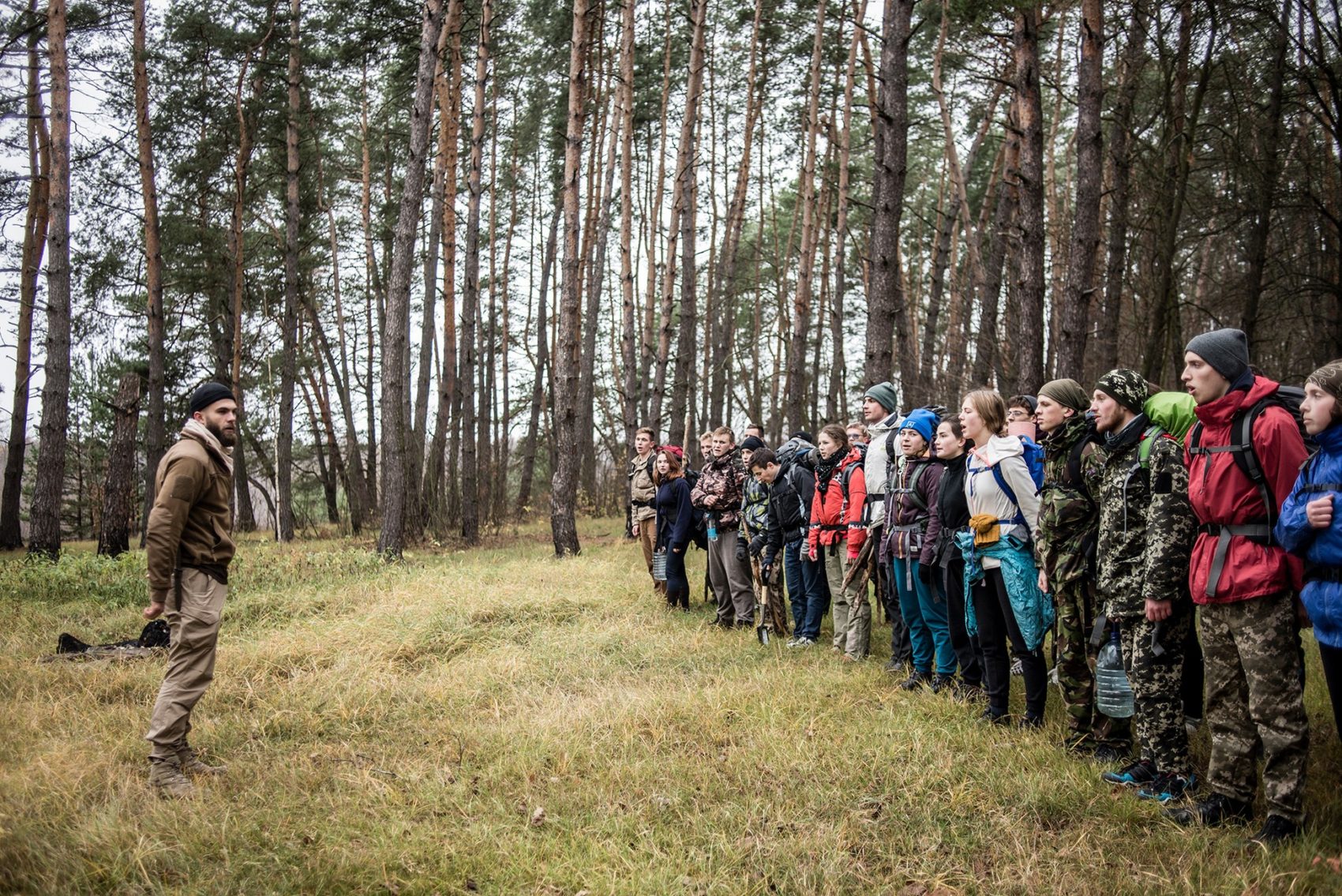
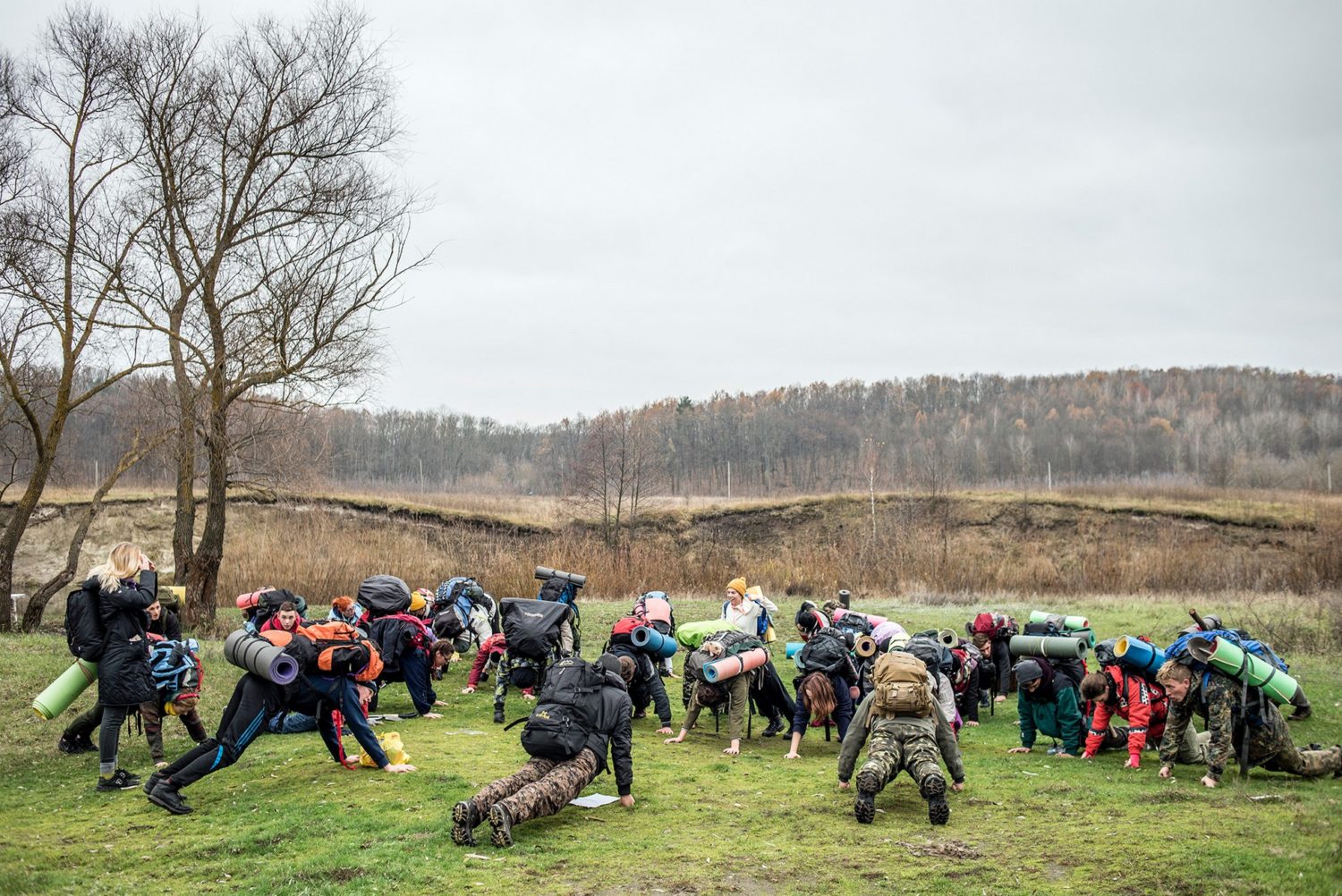
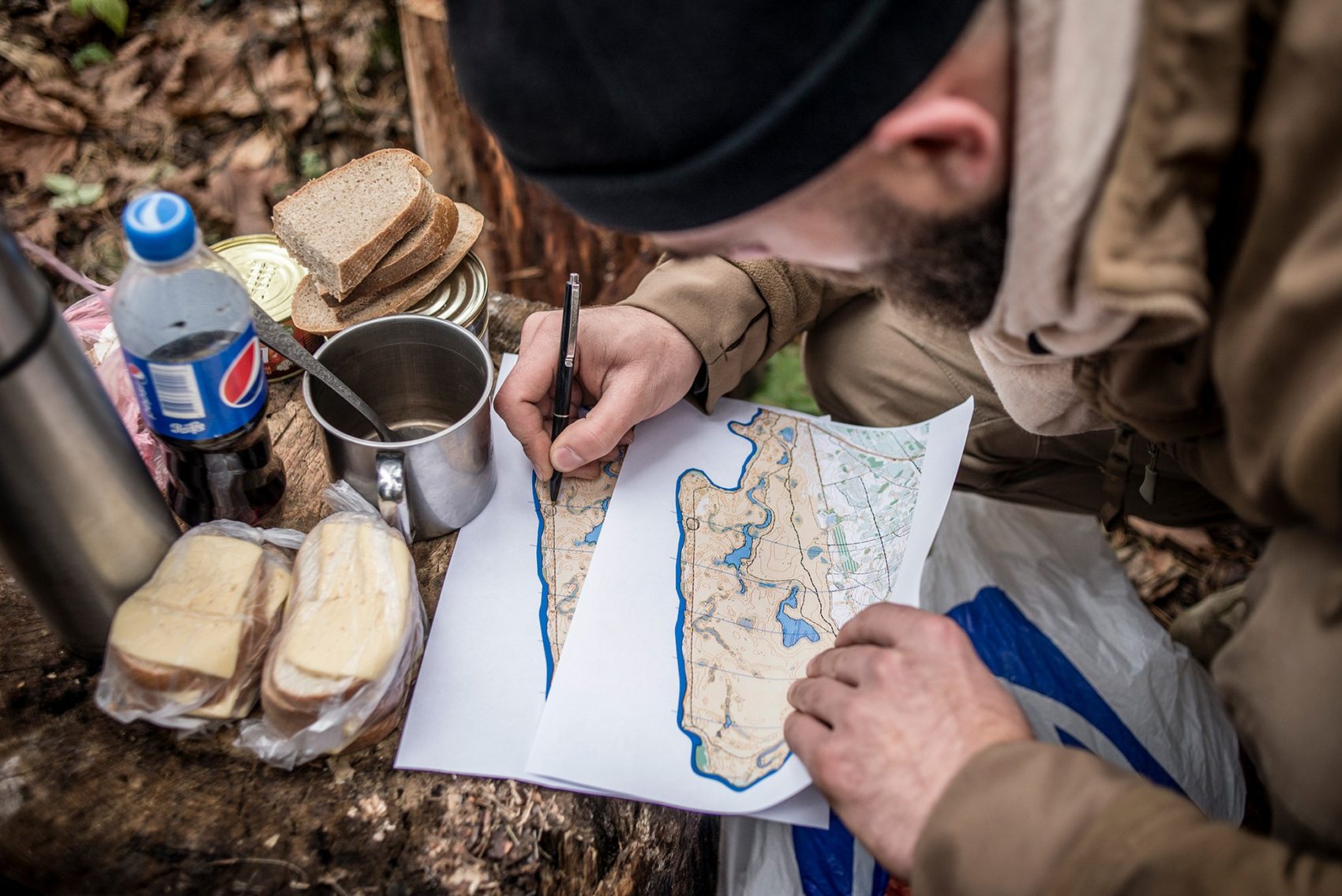
On December 8, there was an ocean of people on Maidan. I was among them, and I couldn’t believe that all of this was actually happening. “It’s impossible. It’s impossible,” I kept repeating to myself. And in the evening, we knocked down Lenin. I remember how one priest was explaining the physics, how it was better to set up the ropes to make him fall quicker. Funny.
I traveled back and forth, to Maidan and then back to the university. In Kharkiv, I didn’t have many people to discuss it with, maybe only with the guys from the kickboxing club. At the university, nobody gave a damn. And in Kyiv, I took my camera and filmed people, asking why they went out to Maidan. Everybody had their own motivation, but all of them were united by the desire to change the situation for the better.
“It’s impossible. It’s impossible,” I kept repeating to myself. And in the evening, we knocked down Lenin. I remember how one priest was explaining the physics, how it was better to set up the ropes to make him fall quicker. Funny
I joined the guys from the Afghanistan Veterans Union. Of course, you can have your doubts about them. But their company felt cordial. I manned checkpoints, participated in the rapid response team, sometimes I sorted food at the storage base — I did a little of everything.
In spring, I went back to my usual rhythm. I started working seriously on my MA thesis, preparing for the defense.
But then the trouble with my sister happened.
ІІ. The War
Oleksiy saw on YouTube a video where his sister was beaten up and forced into a car.
Two years his junior, Olesia (his mother did have a daughter after all) organized a Plast camp together with her boyfriend. Every morning, near the water reservoir not far from Lutuhyne, they raised the Ukrainian flag and sang the national anthem together with children. And, apparently, this irritated someone.
“Three men approached them,” Oleksiy has told this story many times already. And each time in the same words. “They grabbed the flag and tore it. They said, ‘What are you singing here? This is not Ukraine anymore. This is Luhansk People’s Republic!’ The children fled. And my sister and her boyfriend were taken to Luhansk, to the Security Service’s building, which had been captured by then.”
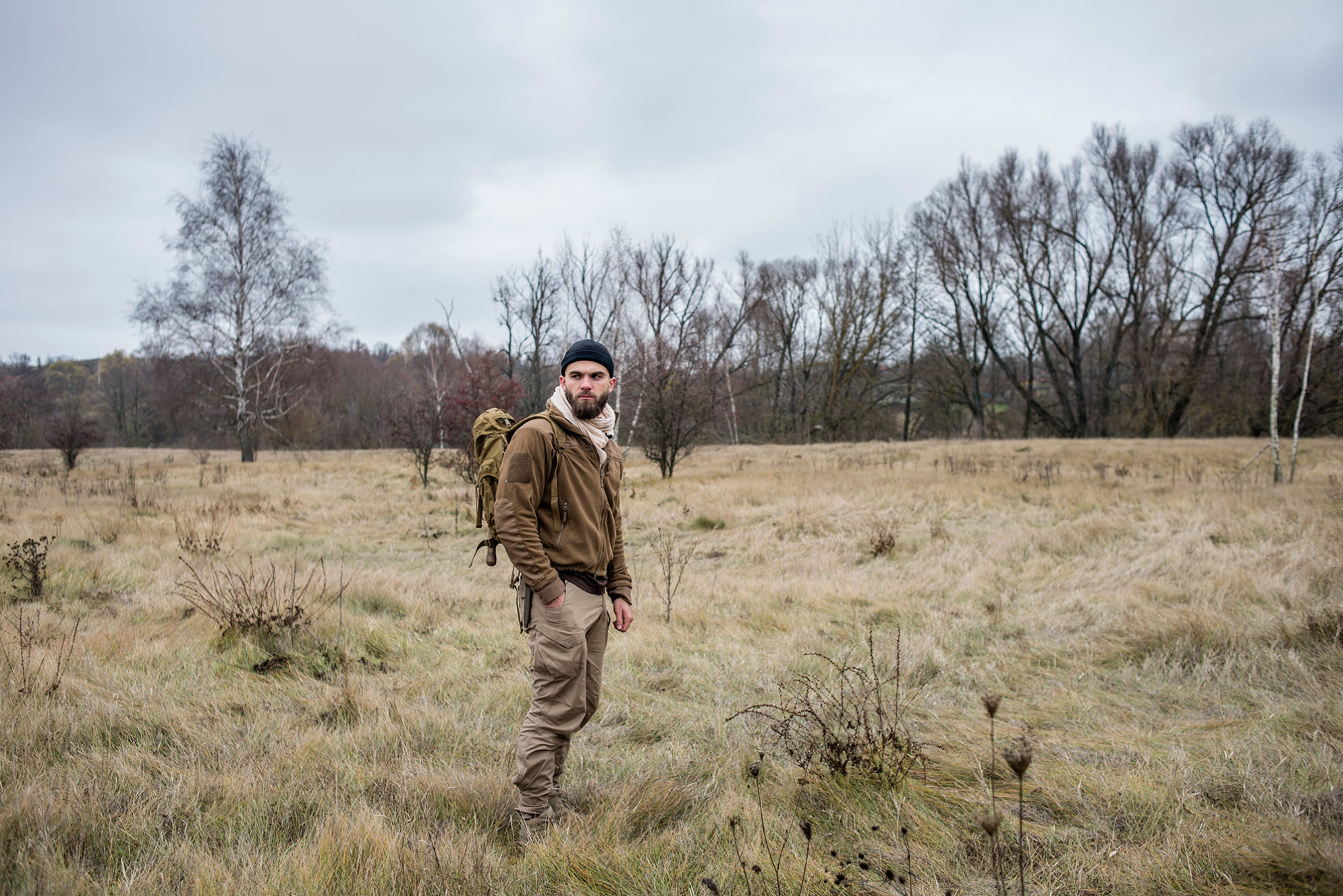
Olesia was freed from the “militiamen”’s claws by her father. Her boyfriend was tortured, but a little later, they let him go, too.
And the armed men uploaded the video to the internet — they were probably proud of themselves.
— “At first, I felt rage, fear and helplessness. And then I told myself, ‘You cannot be afraid anymore.’ And the fear disappeared.”
He defended his thesis, and the next day he went to war.
***
“I was lucky,” he says ironically. For the almost two years of fighting in the war, Oleksiy was never seriously wounded. But he did get his trauma — he damaged his back when he was carrying a dead fellow soldier out of the battlefield near Ilovaysk. Aksion was killed by a piece of an RGD-5 which hit him right in the eye. The next grenade took the life of Khoma. It exploded near his stomach. And then there were several more hits nearby and several lighter wounds. Oleksiy wasn’t hit though. Only his back sometimes still hurts unbearably. Reminding him of the fallen.
Back then, in May 2014, after his sister was rescued, he signed up for the volunteer battalion Azov. He rose from a private to a serjeant, the deputy commander of their hundred.
“I picked the division based on one principle — to fight on the front line. I wanted as dangerous combat missions as possible. I wanted to feel responsible.”
I picked the division based on one principle — to fight on the front line. I wanted as dangerous combat missions as possible. I wanted to feel responsible
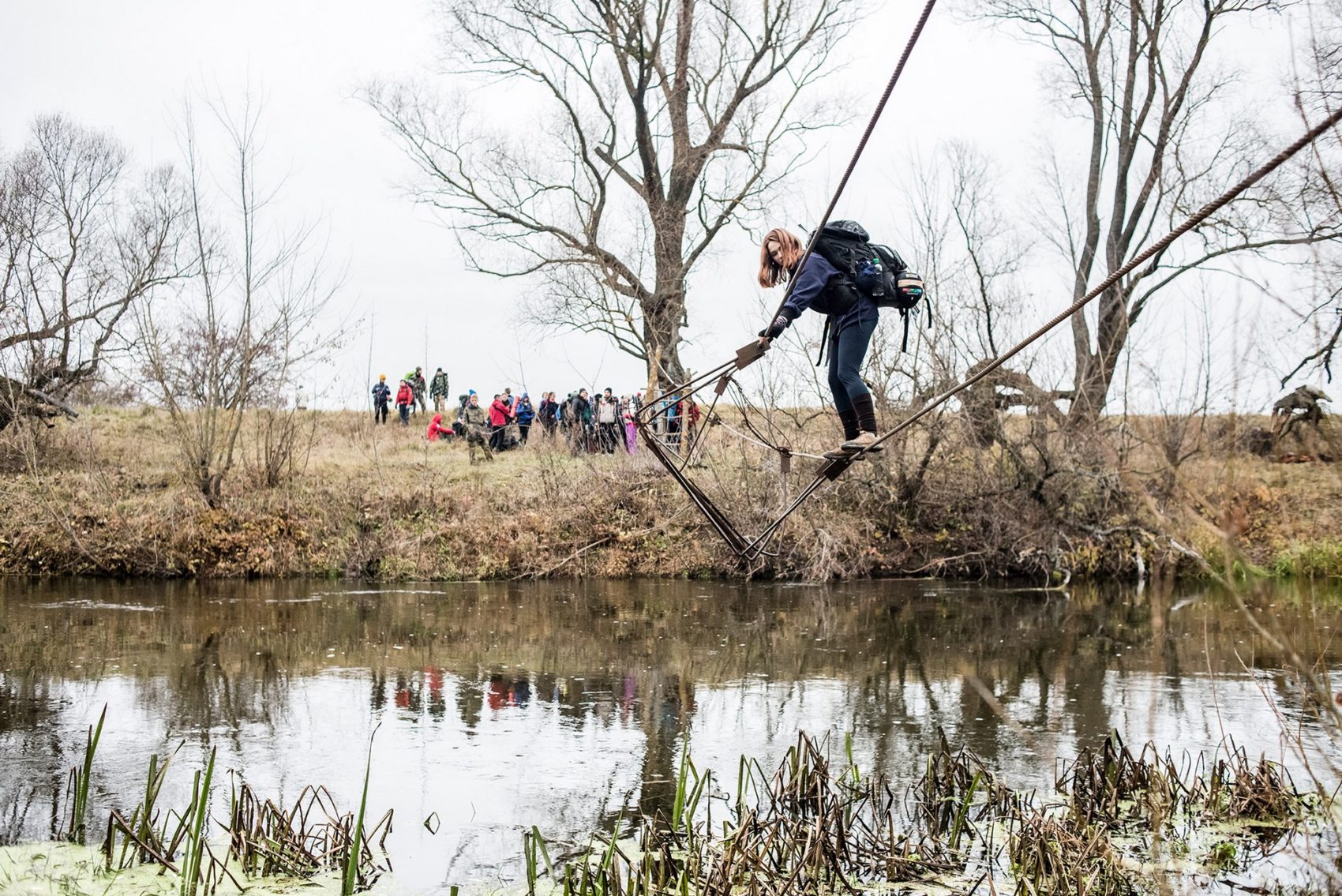
He felt it fully when the enemy shelled Mariupol with the population of nearly half a million.
“They shot two cassettes of Grads at the city. We went there urgently, evacuated those who were not hit, helped the wounded, carried away the killed. We recorded everything on video — it was important for us to show the rest of the country what exactly had happened.”
He admits that the war taught him a lot.
It taught him to take responsibility for others.
“In one of the villages, I climbed down into the cellar. Candles were standing on every possible surface, along with lots of melted wax which nobody bothered to remove. In the corner, near an icon, a woman with a shawl on her head was whispering prayers. And her children were jumping around. They didn’t understand what was happening, they were just bored and wanted to play. And then my eyes met the eyes of the father of this family. There was so much pain and sorrow in him. So much helplessness. I often recalled these eyes later, and I realized that I must do everything in my power to help.”
It taught him to understand that nobody owes you anything.
“‘Yesterday, our brother in arms was killed. We don’t know where to get ammo. And you’re talking about these petty problems of yours?’ That’s what I thought at first. I was annoyed that not everyone cares about the war as much as I do. And then I understood that everyone contributes as much as they can.”
It taught him to be happy about small victories.
“I will never forget how we managed to destroy many enemy machines, and the enemy retreated. We entered the village, and we were happy like kids! It was such a strong internal feeling of victory — we knew we could do it! That morale in the beginning often compensated for our military incompetence, since we weren’t professional soldiers.”
It taught him to value the here and now.
“You meet someone, make friends, enjoy talking to them and doing something together. And suddenly you get a message that Champion is “200.” And you cannot believe that he’s “load 200.” You cannot and that’s it. Anyone but him. And then you start thinking that you might be next.”
It taught him to share with his loved ones.
“I didn’t tell my family right away that I went to fight. I told only later, and only to my dad. It was a mistake. Father had no way to influence my decision or to help, and he had nobody to share this burden with.”
It taught him to make decisions.
***
“There is an unannounced hybrid war in our country,” says Oleksiy, articulating each word loud and clear. Forty students from all over Ukraine are standing in line in front of him — the participants of the training.
There is fire in their eyes.
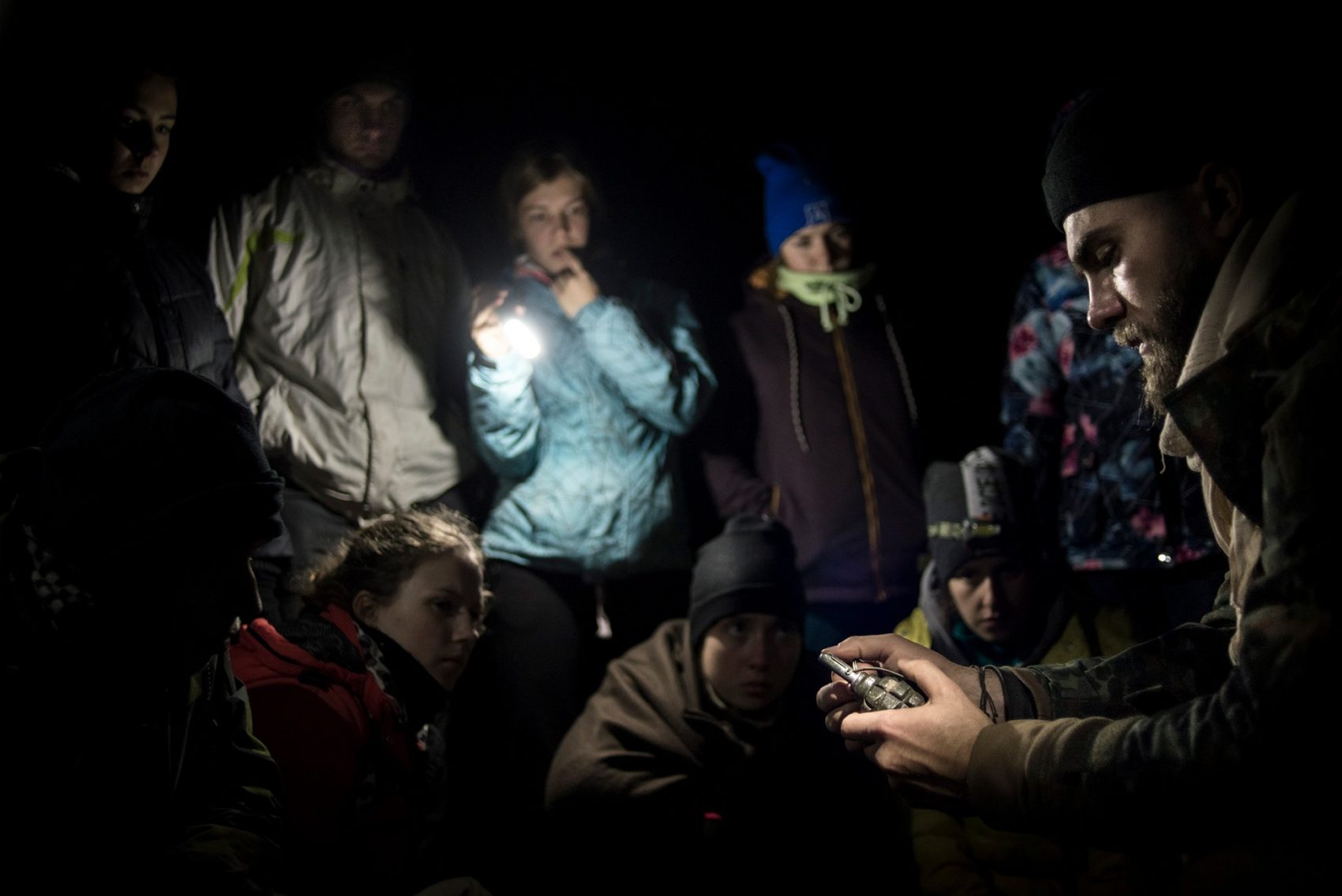

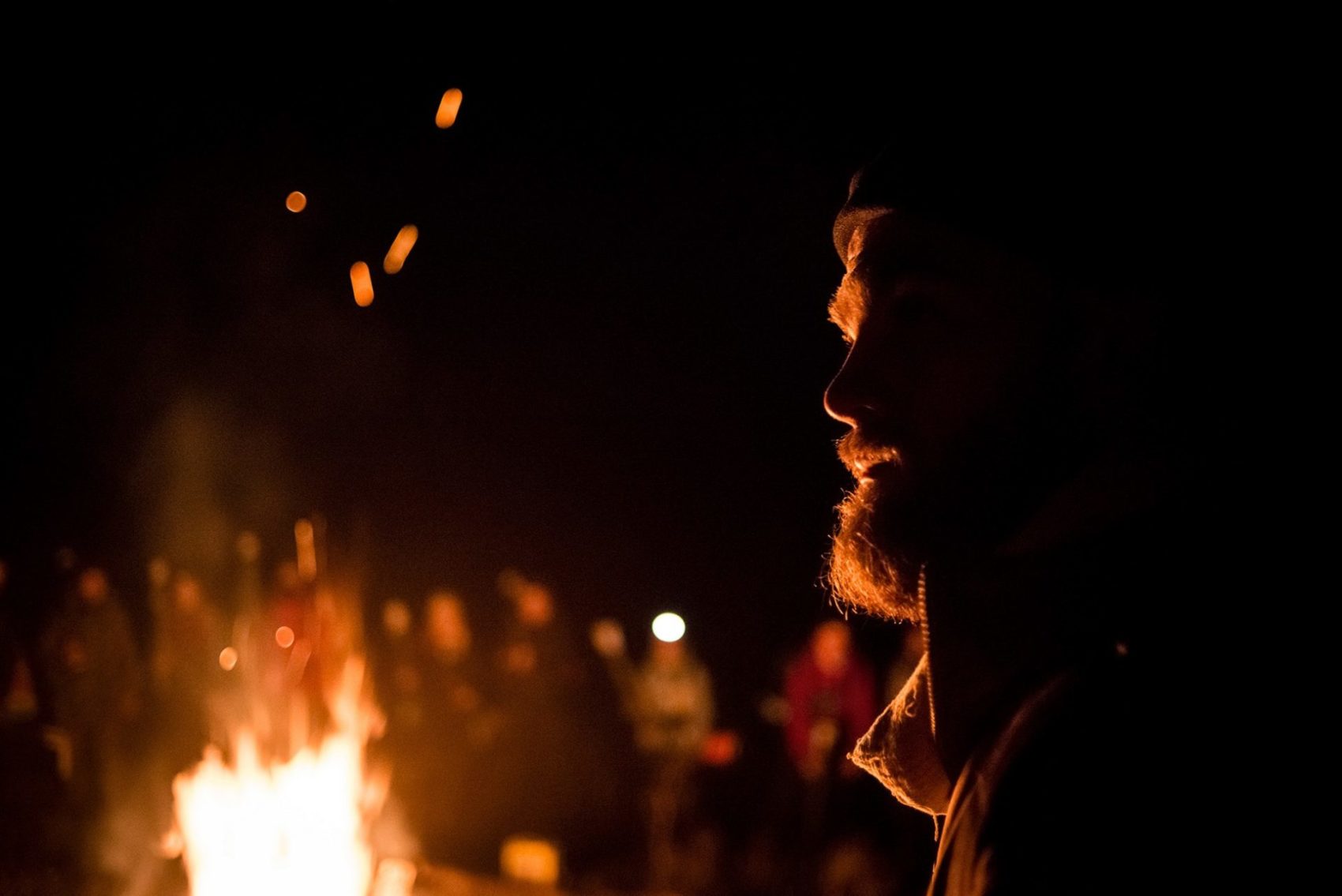
“You must be ready for anything,” continues his exhortation Oleksiy. “Your task for the next hour is to set up a kitchen, cook breakfast (if you’ve found it), make a guard point to see who is coming and going, and dig an individual trench for everyone. Raise your hands who can do it.”
About ten hands fly into the air.
ІІІ. The Abilitation
I couldn’t get rid of the feeling that we’re being betrayed. We are fulfilling a military mission, and the commandment refuses to give us the machines or doesn’t order a counter-attack. You sit in a trench and wait for a shell to hit you. That’s your whole mission. I decided I could spend my resource better. And I wrote a discharge request.
It is difficult to notice any change in yourself. You feel normal. You feel like the same old Oleksiy, who simply returned from the war. But no.
It is difficult to notice any change in yourself. You feel normal. You feel like the same old Oleksiy, who simply returned from the war. But no
At war, all of your emotions switch off rather quickly. You don’t even try to find shelter when there’s shelling anymore, you just do your job in cold blood. You become like a robot. And when you come back, it is hard to switch yourself back on, to restore your emotions and to be alive.
I carried a weapon for a long time afterwards. I thought that we, the volunteers, will be persecuted in the peaceful land, too.
I couldn’t take off the military uniform for a long time. I felt strong in it.
I could not let everything I had experienced go.
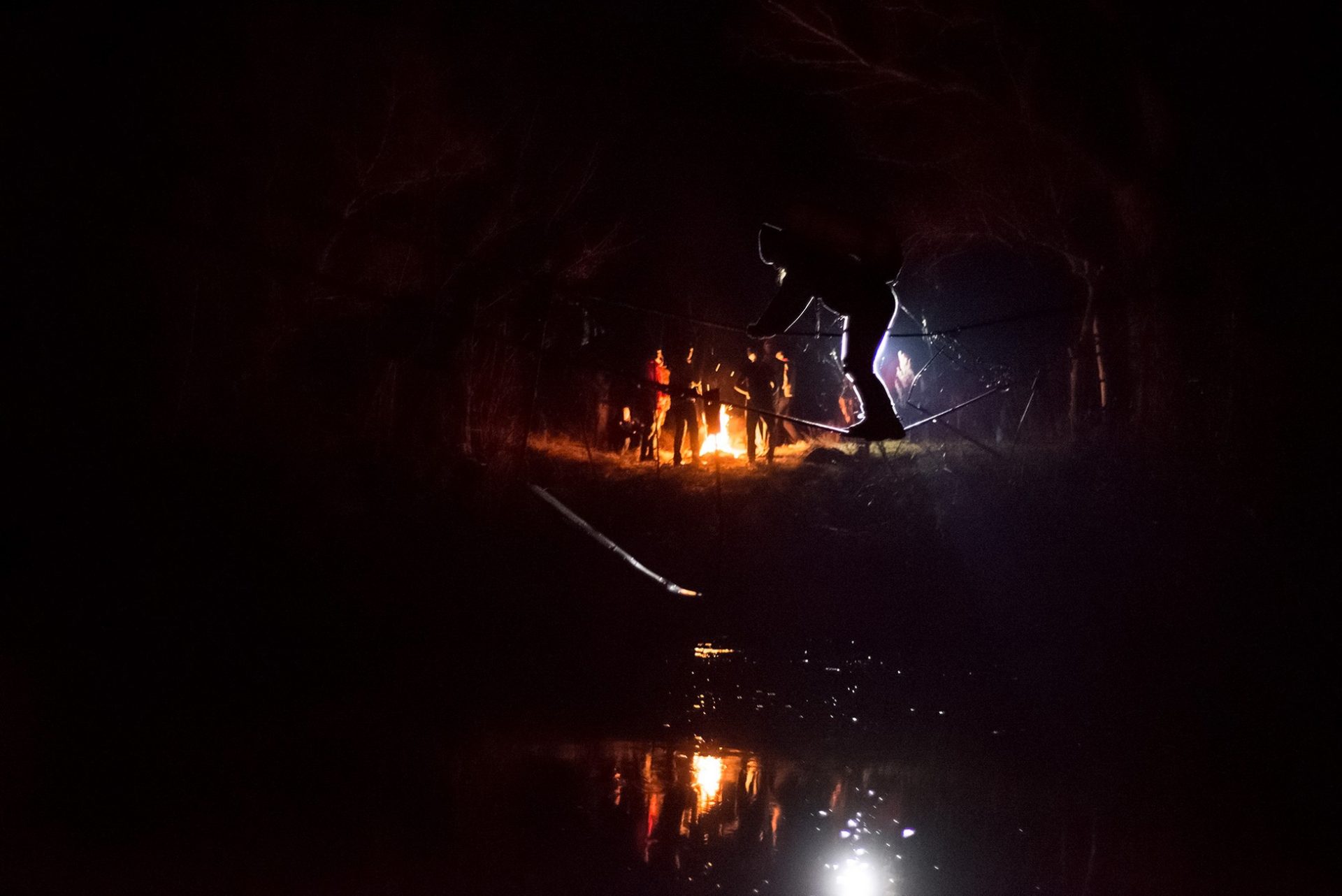
***
I felt better after rehabilitative bodynamics training.
That was when I started looking for where to invest my resources and experience. We have already tried doing revolutions, we have tried a war, but the results have been disappointing. Well, then we need to take the longer way around. With our everyday labor, we need to build the society which will be safe to live in. Where people will remember not only their rights, but their duties, too.
We have already tried doing revolutions, we have tried a war, but the results have been disappointing. Well, then we need to take the longer way around. With our everyday labor, we need to build the society which will be safe to live in
By now, I have been to Israel several times. People talk a lot about their love for the state there. But the state in Israel starts with an individual who is the central value. If you are successful, the country is successful, too.
That was the direction I was thinking in, when chance put that iPhone into my hands.
IV. Leadership
An ordinary iPhone. He cannot even remember the exact model.
It was lying lost on the back seat of a taxi.
In a week, Oleksiy gave it back to the owner’s wife. They started talking.
“Come to us for a job interview!” offered Yulia in only a few minutes.
Her husband and the smartphone’s owner, Roman Tychkivskyi, turned out to be the head of the Ukrainian Leadership Academy. The Academy is an alternative form of education for high school graduates. For ten months, the students live (basically in summer camp conditions) at one of the centers which exist in five Ukrainian cities. They take a personal development course, full of studying, meetings, travels and volunteering.
In the first year, Oleksiy was a mentor for the students in Kyiv. Next year, he was already the head of the Academy center in Poltava.
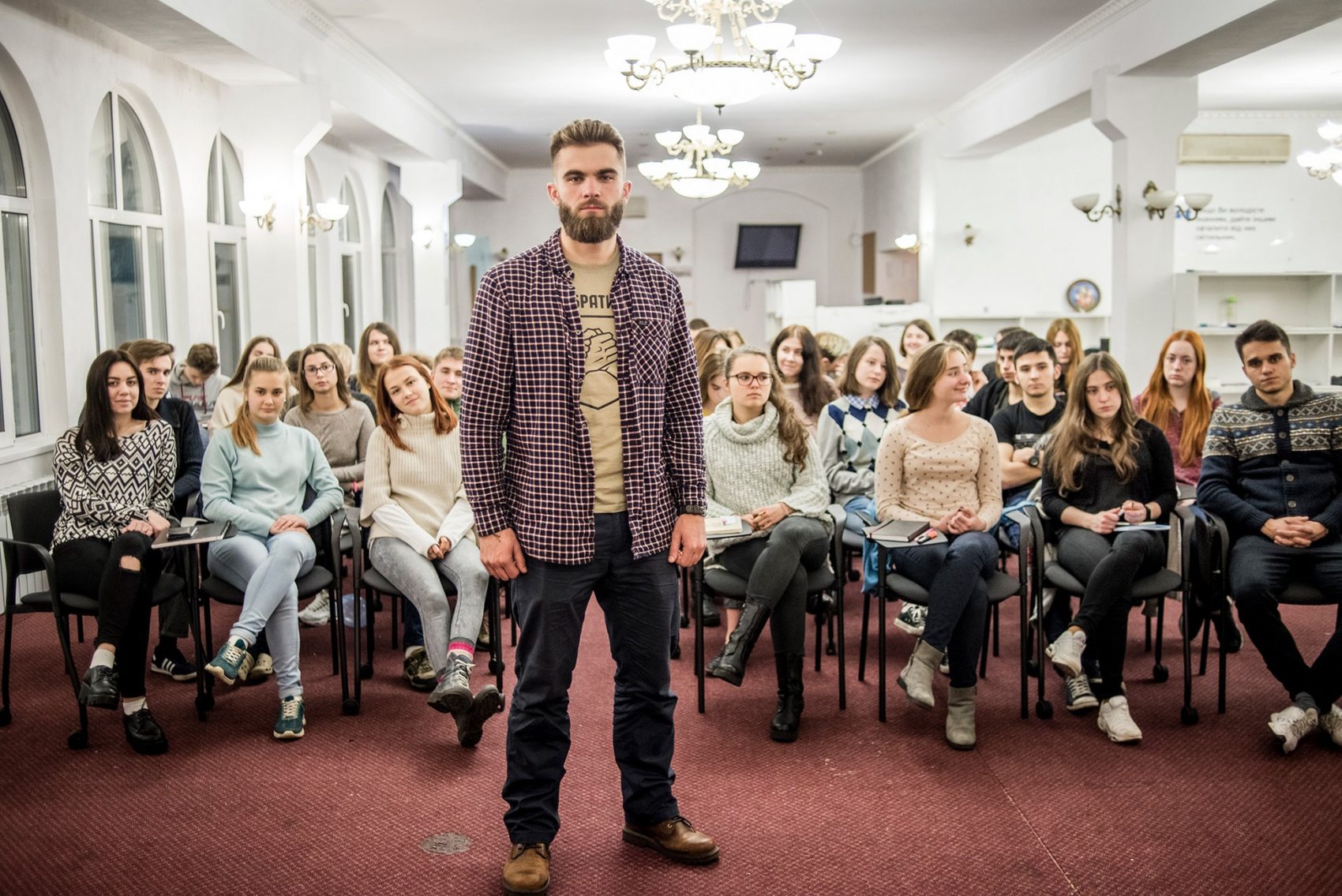
“I felt that this was my thing,” he explains. “In fact, I am a manager, and this process includes everything: teambuilding, working with students, administrative work, search for new projects and strategic partners, work with NGOs, volunteering. I need to constantly work on myself.”
“Maidan,” he continues, “became a traumatic experience for us all. But at the same time, it allowed us to feel that change is possible, if only you contribute to it. You know, I never say I’m ‘working,’ only that I’m ‘busy.’ Because what I do is my mission, not my job. And I like to live this way. When last year’s graduates call and share their news, their present projects and plans, I sometimes feel like crying of joy. At these moments, I understand that the year was not wasted. People realize themselves and do their work sincerely. I believe that they will build a completely different society around themselves, a society based on values.”
Maidan became a traumatic experience for us all. But at the same time, it allowed us to feel that change is possible, if only you contribute to it
He says it gives him strength.
***
The night fell suddenly. The students who ran a total of about a dozen kilometers across the borderland forest during the day still haven’t crossed the river Psel. But they are about to be here — where an ambush is waiting for them.
Oleksiy is lying flat right on the grass — his back reminded him of the war once again with sharp pain. He would look at the stars, but he cannot see them — the sky is covered with clouds like with a blanket.
You know, I never say I’m ‘working,’ only that I’m ‘busy.’ Because what I do is my mission, not my job
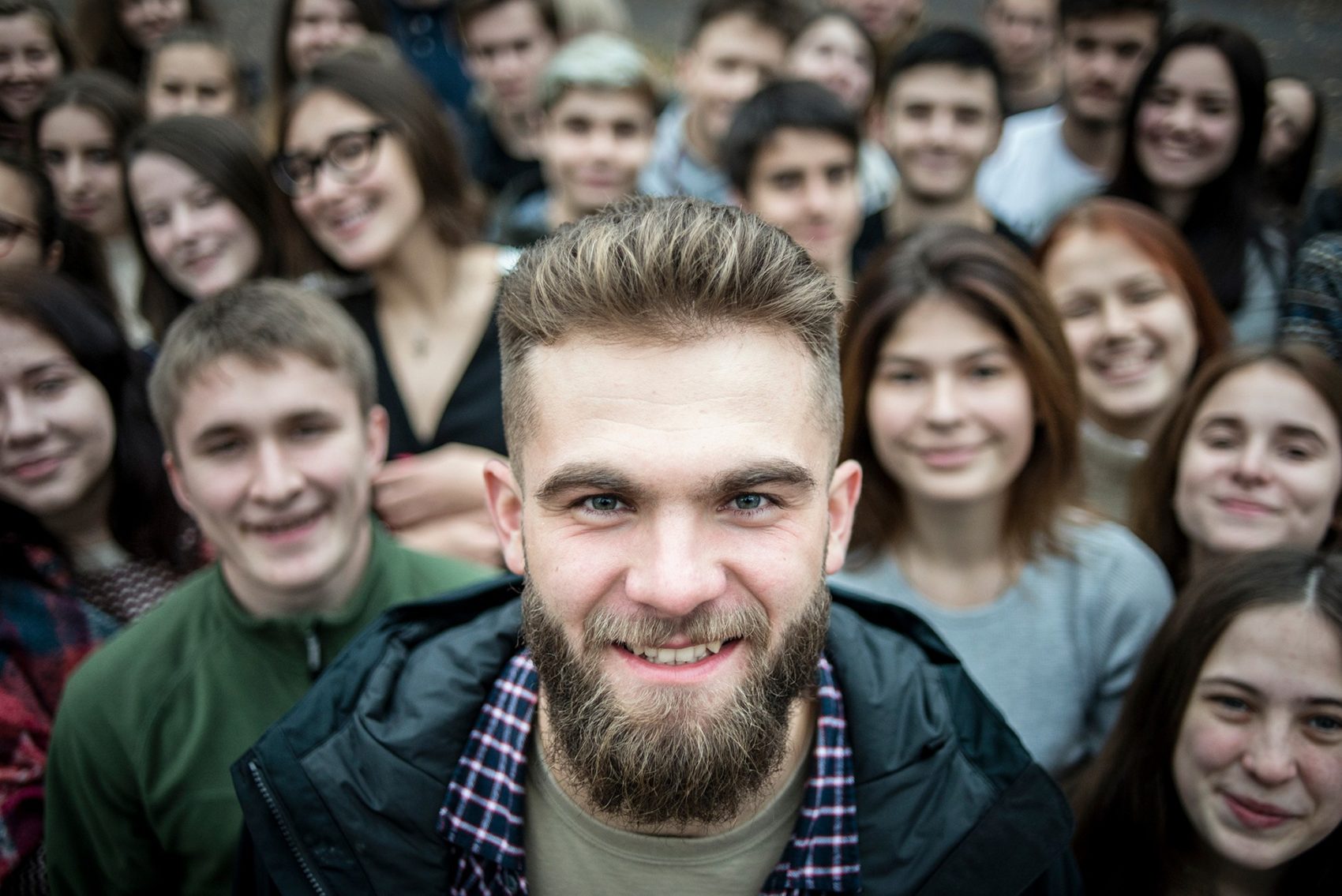
“This exercise is just a game,” he says quietly. “But we are all children, after all. And we all like playing. My students and my fellow soldiers like it, too. It is important not to kill this child in them.”
“Turn off the lights,” we hear suddenly from the dark.
They’re coming.
